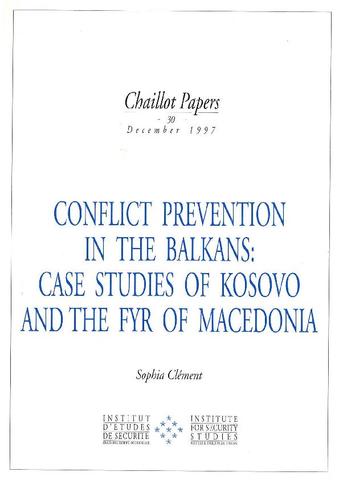You are here
Conflict prevention in the Balkans: case studies of Kosovo and the FYR of Macedonia

Concerned as they are by the many crises occurring on their very doorstep, the European public, politicians and analysts seem hardly to recognize other conflicts in Europe that have not happened and need not happen. Crisis prevention and peace-building have been sidelined by conflict management and peacekeeping. Yet cooperative security, this new task of the international community, is essentially about prevention, and has therefore to do with improving transparency and the predictability of the many factors that characterize today's security equations. In this endeavour, the cooperation of the parties directly involved is indispensable, since the international community can propose but not impose, and even less substitute for them. The simultaneous European trends towards integration and disintegration are not necessarily contradictory: they must be reconciled through the acceptance of diversities and the promotion of interaction, and by the removal of anachronistic psychological barriers and the blurring of national borderlines. This Chaillot Paper by Sophia Clément constitutes recognition of the wisdom and perseverance of politicians and the population in the two cases considered here, who are determined to look beyond the most immediate obstacles to stability. While they can by no means be considered definite success stories, the separate realities of Kosovo and the FYR of Macedonia present opportunities for the international community to adopt and maintain a comprehensive approach. The first draft of this paper was presented at a seminar on conflict prevention in the Balkans in 1996, and subsequently expanded. The purpose of the study is to specify the various roles and responsibilities of local, regional and international actors, which European institutions, including WEU itself, must stimulate and support.